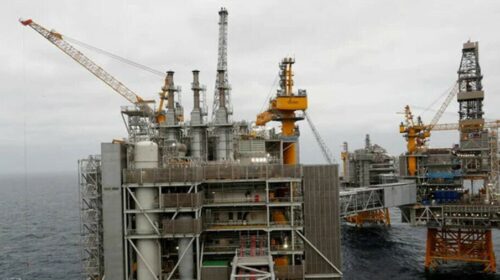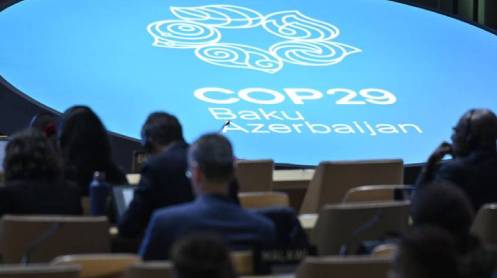Europe’s campaign to quit Russian fuel
is designed to punish Moscow for its
invasion of Ukraine. It’s also wreaking
havoc thousands of miles away from
the conflict, plunging Pakistan into
darkness, undermining one regime and
threatening the stability of the
country’s new leadership.
A decade ago, the world’s fifth-most populous country took specific steps to
insulate itself from the kinds of violent price spikes that are roiling the market
today. It made a massive investment in liquified natural gas and signed longterm
contracts with suppliers in Italy and Qatar. Now some of those suppliers
have defaulted, though they continue to sell into the more lucrative European
market, leaving Pakistan in exactly the position it tried so hard to avoid.
In order to avoid blackouts during the Eid holiday last month, the government
paid nearly $100 million to procure a single LNG shipment from the spot
market, a record for the cash-strapped nation. In the fiscal year ending July,
the country’s costs for LNG could top $5 billion, twice what they were a yearago. Even so, the government can’t cushion the blow for its citizens: TheInternational Monetary Fund is in talks to bail out the nation with a keycondition that it cuts fuel and electricity subsidies.
Now parts of Pakistan are experiencing planned blackouts of more than 12hours, limiting the eff ectiveness of air conditioning to off er relief during theongoing heatwave. The previous prime minister continues to draw largecrowds to rallies and protests, amplifying citizens’ anger about infl ation that’srising at 13.8%. Prime-time talk show hosts regularly discuss how Pakistan willget the fuel it needs, and how much it will have to pay.
Last week, the government announced a new raft of energy-saving measures.Civil servants were released from regular Saturday shifts, and the budget forsecurity personnel was slashed 50%.
“I am acutely aware of the hardships people are facing,” Prime MinisterShehbaz Sharif said in a tweet in April ahead of the Eid holiday. He orderedhis government to resume purchasing expensive overseas natural gasshipments that same week. And earlier this month he warned that they don’thave enough money to continue buying gas from overseas.
The supply crunch will go beyond blackouts. The government has redirectedexisting natural gas supplies to power plants, short-changing fertilizer makersthat depend on the fuel as a feedstock. That move could threaten the nextharvest, leading to even higher food costs next year. Cellphone towers areusing backup generators to sustain service through the blackouts, but they tooare running out of fuel.
There’s little reprieve on the horizon. The cost of LNG has surged by more than1,000% in the last two years, fi rst on post-pandemic demand, then on the
Russia
invasion of Ukraine. Russia is Europe’s biggest supplier of natural gas,





